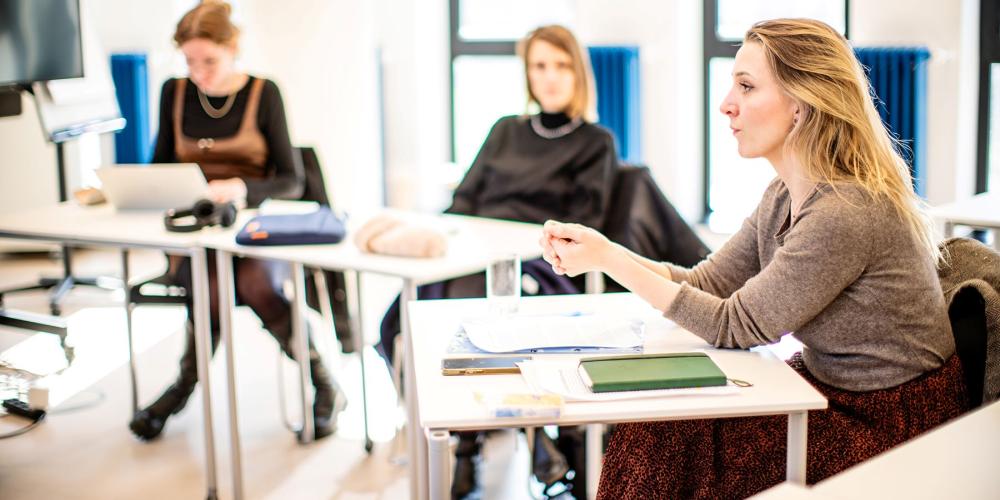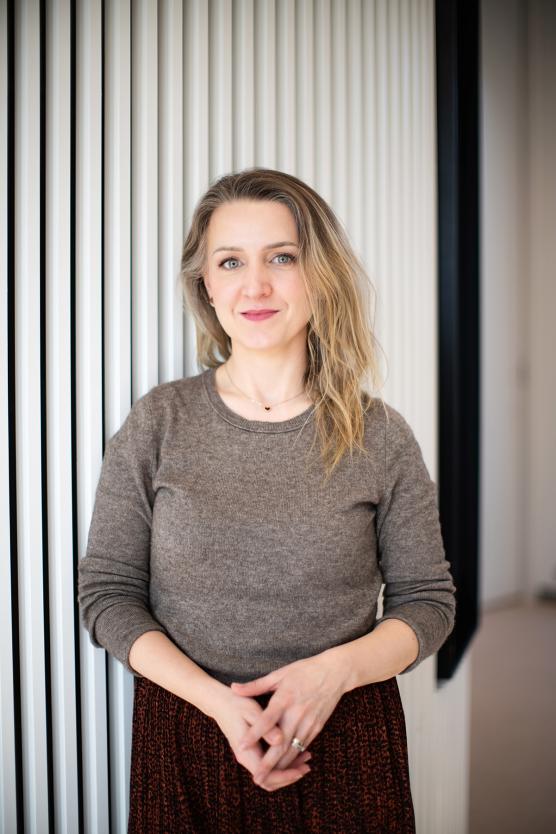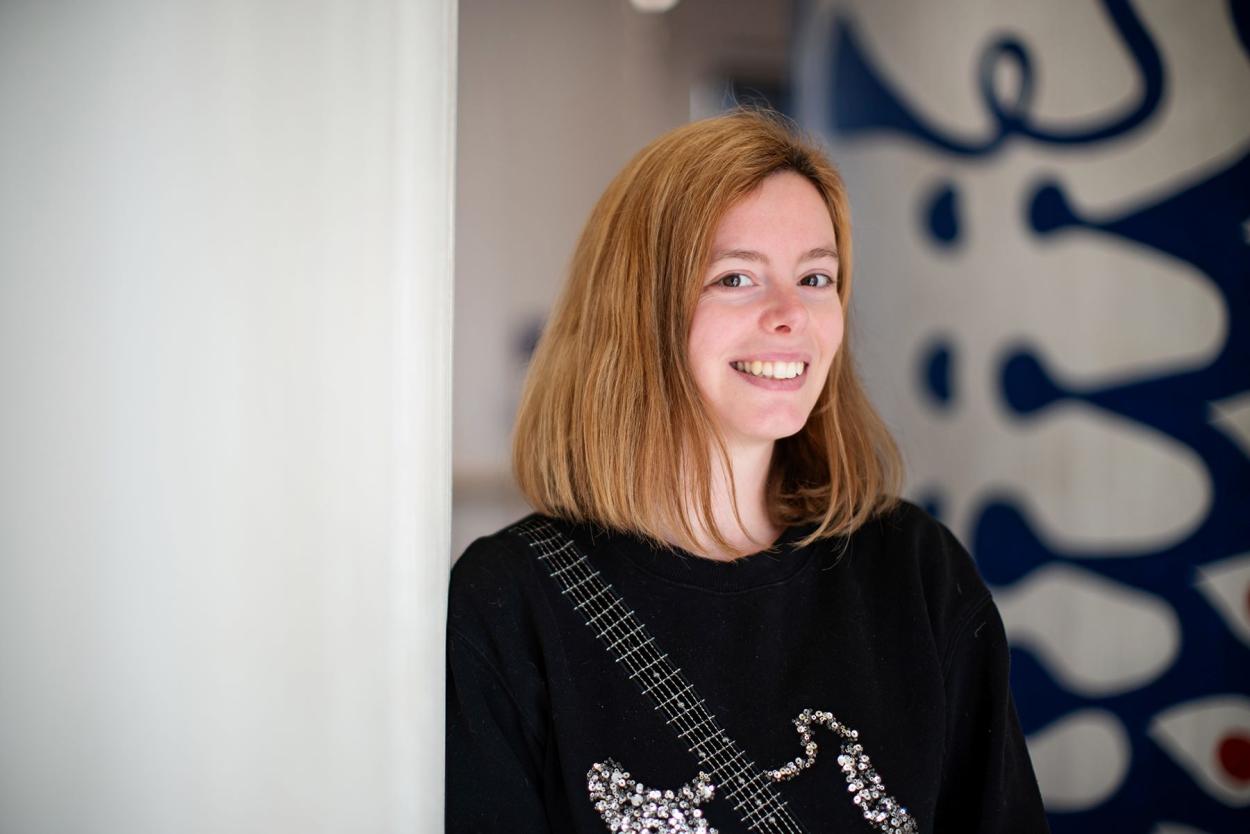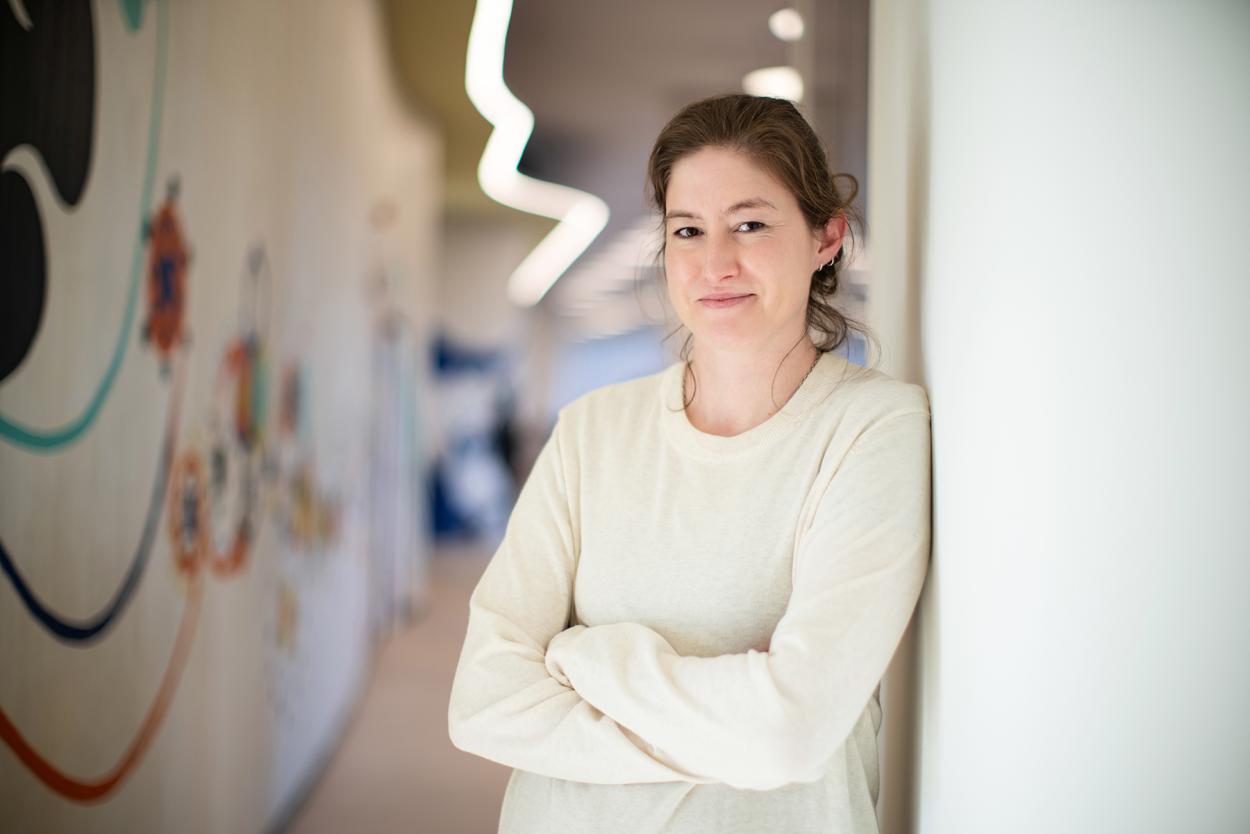
Science is all about long, deep and critical reflection. But the lecture hall and lab should never be ivory towers, says author and broadcaster Alicja Gescinska. As the curator of PACT, the Caroline Pauwels Academy of Critical Thinking, she encourages doctoral students and other researchers at VUB to make their voices heard in the public discourse. She organises a workshop where she teaches them how to write opinion pieces with impact. “People outside the university don’t usually get the chance for a one-on-one explanation from an expert. In an opinion piece, you can do just that.”
The workshop is part of VUB's doctoral training programme and PACT, the Caroline Pauwels Academy of Critical Thinking of VUB. Should researchers always publicise the results of their studies?
Alicja Gescinska: “A university shouldn’t just be about research and teaching, but also about public service. Being part of the public debate is a good way to give something back to society. Scientists are very sensible people with real expertise in their field that gives them an interesting view of society. And that’s what I want them to share. Not every researcher has to write opinion pieces. But if the format suits you, it’s a dream medium. Every opinion piece is a hand stretched out to society.”

Alicja Gescinska
“It’s not easy to be nuanced in 700 words”
An opinion piece is short, but science is full of numbers and nuance. Can the two be reconciled?
“You have to be as nuanced as possible, within the limits of 700 or 750 words. That’s a challenge. But so is a three-minute interview on Radio 1. Explaining your PhD research won’t work, nor will drowning the reader in data. But as an expert, you can offer relevant information, perhaps using an interesting figure. Based on that, you can then explain why you’re concerned about an issue and propose a possible solution. The first is a scientific fact, the second an opinion.”
You can often detect anger or indignation in opinion pieces, can’t you?
“It’s good that people are angry. That means they have their eyes open, that they notice injustice. You have to turn this anger into something constructive. You use civilised language to explain what you see as the issue, and what can be done about it. The idea is to get other people to understand your point of view and realise: this is indeed a problem, and we need to do something about it. An opinion piece should give the reader a different, broader view of an issue. That’s why scientists are so suited to writing them. They’ve studied their subject and they know what they’re talking about.”
Do you need to be a great writer to write an opinion piece?
“You don’t have to be Hugo Claus or Erwin Mortier – it’s not a writing competition. But it does require a certain skill to be able to package your message in such a tight space. It’s totally different to academic writing. The more you do it, the better you get. Eventually, it becomes easy.”
Your workshop is made up of five women and two men, isn’t it?
“In the press and on TV, it’s often men who give their opinion or debate. Women are more cautious, they too often think that they don’t know enough to say what they think. That’s why it’s so important to encourage them. In the workshop I always say: of course you have enough expertise, of course your opinion matters, of course you’re ready!”
Do women get stronger reactions when they speak up?
“Publicly stating an opinion isn’t easy for everyone. You’re exposing yourself and can be challenged on what you’ve said. It’s more comfortable to say nothing. What you said is right: women who write about their opinions – especially young women – are judged more harshly. But I don’t think that shouldn’t hold you back from doing it.”
“This is how the VUB contributes to the democratic process”
Your parents fled Communist Poland when you were seven years old, and freedom has been a central idea in all your work, hasn’t it?
“Freedom of expression is incredibly important to me. I’m chair of PEN Vlaanderen, which stands up for freedom of expression and for authors and journalists who are threatened or persecuted for what they write. Freedom of expression also means allowing a variety of opinions in the public discourse, including from people whose opinions you fundamentally disagree with. We sometimes underestimate it, but that is a foundation of our democracy. A sociologist, a criminologist, a lawyer and a philosopher might all view crime and punishment differently, each from their own area of expertise. It can only enrich the debate. That’s why I’m happy to give this workshop. It’s how the VUB contributes to the democratic process. That might sound a bit heavy, but it’s true.”

Training programme for doctoral students
VUB's Doctoral Training Programme offers more than 2,000 doctoral students a structural framework for developing research and teaching skills. They can attend free seminars and numerous workshops, for example on presentation techniques, project management, academic English or career coaching. Thanks to the programme, they acquire skills that add value to their PhD careers and their future careers inside or outside academia.
Read more about earning a doctorate at VUB Are you a doctoral student at VUB? Discover our training programme.

Professor Deborah De Moortel
“I shied away from having my opinion published"
Professor Deborah De Moortel of the Department of Sociology studies mental well-being, quality of employment and inequality on the labour market. She had a number of misgivings about writing opinion pieces. “I was too much a scientist and not enough a person with an opinion. To come across as an expert, I filled all my arguments with numbers. That’s what you’re taught as an academic: you publish numbers, not opinions. In this workshop I’ve learned that that’s not what you need for an opinion piece. If someone asks for them, you should be able to provide them. But in the article itself, there’s very little place for them. So you have to say what you think about the issue. I once wrote a piece about a socially sensitive subject. I shied away from having it published. An opinion is quickly attached to you as a person and I didn’t want to be stuck with it. What if I changed my mind? This workshop has made me realise that the best opinion leaders change their minds. That the very purpose of opinion pieces is to spark and enrich debate.”
“I want to bring philosophy into people’s daily lives”
Olivia Lastra is a philosopher affiliated with the RHEA Centre of Expertise on Gender, Diversity and Intersectionality at the VUB. She has just begun a PhD on courage as a moral virtue from a feminist perspective. She is eager to publish opinion pieces, as there are many topics that make her angry. Such as? “It’s too early to say much about it. But I think that you have a social responsibility as an academic. Especially in philosophy, it can be tempting to lock yourself up in an ivory tower and not worry about social relevance. I think that’s how a lot of people outside academia see it. When I say I’m studying philosophy, they often respond: what use is that? But philosophy is there through our lives. That’s why I also want to bring philosophy into people’s daily lives. Opinion pieces are a good medium for that. Putting the world to rights with friends or at the bar is easy. To write an opinion piece, you need to develop your opinion properly and formulate it in clear, plain and accessible language. This workshop is the first step towards that for me.

Olivia Lastra
The World Needs You
Do you agree that public debate needs more nuance and dialogue? Are you a professional or an engaged citizen looking for depth? Are you a pupil or student who wants to add an extra dimension to your education? Then check out VUB's public programme and the Pauwels Academy of Critical Thinking (PACT), created by VUB scientists and guest curator Alicja Gescinska. With PACT’s tailor-made programmes, you’ll expand your critical view of social trends and set the world in motion.
